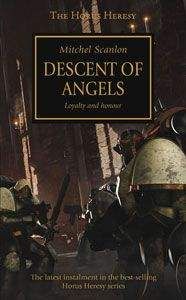Jonathan Howard - Johannes Cabal: The Fear Institute
На сайте mybooks.club вы можете бесплатно читать книги онлайн без регистрации, включая Jonathan Howard - Johannes Cabal: The Fear Institute. Жанр: Прочее издательство неизвестно,. Доступна полная версия книги с кратким содержанием для предварительного ознакомления, аннотацией (предисловием), рецензиями от других читателей и их экспертным мнением.
Кроме того, на сайте mybooks.club вы найдете множество новинок, которые стоит прочитать.

Jonathan Howard - Johannes Cabal: The Fear Institute краткое содержание
Johannes Cabal: The Fear Institute читать онлайн бесплатно
Fortunately, the pretentious nature of wizards in general and the sort who raise obtrusive towers in other people’s cities, without so much as a by-your-leave or planning permission in particular, worked in Cabal’s favour. The first tower they approached was all basalt blades jutting into the air around the topmost reaches, with sinuous forms in black marble disporting themselves around the door. It was quite evident why this particular magus had got into the job in the first place. Over the door was carved a sphinx couchant, and when they approached, she turned her face to them and said, ‘Whosoever wishes to meet with Calon of Serpes, the Sage of the Amber Star, must first answer me riddles three.’
‘Calon of Serpes,’ repeated Cabal. ‘Wrong house. Good day, madam.’
‘Wait a moment!’ demanded the sphinx. ‘I’ve been lying here all couchant for three hundred years waiting to ask somebody my riddles.’
‘Then your wait isn’t over. Good day,’ he repeated, a little firmly, and walked away, the sphinx’s enraged shouting fading in the sigh of the desert wind behind them.
Bose looked at him, eyes wide with fright. ‘The door spoke to us!’ he managed eventually.
‘Strictly, the door frame spoke to us, but yes. Now our next port of call.’
The next tower was oddly proportioned, in a way that would appeal to a student of Freud, and Cabal didn’t have to make many guesses as to this magus’s inner motivations either. Fortunately his name was on a sand-scoured brass plate upon an iron door, ancient but readable, and they were able to exclude it from their enquiries and move on.
The third tower belonged to Ukuseraton the Destroyer – at least, according to the animated stone dog that guarded the place, a glistening spire of woven glass and crystal. Then the dog attacked them, but it was only constructed from common sandstone and the desert storms had blasted it thin, so a well-placed kick decapitated it. It charged at Cabal, or where Cabal had been a moment before, and so completed its destruction by running into a wall and reducing itself to aggregate.
The fourth tower was as black as ebon night, and encouragingly bore the inscription ‘HEP-SETH’ over the doorway in Lorphic hieroglyphs that Cabal was able to enunciate with dismissive ease. Less encouragingly, the door stood open, swinging slightly in the low, endless desert wind.
‘Perhaps he has an open-door policy?’ said Bose, with optimism verging on delusion.
‘Yes, of course. That will be it,’ said Cabal, as he eased the door a little further open with his foot. ‘He raised a tower in this distant damned place, wringing the very matter of it from the footnotes between quanta, and then he left the door ajar because he’s so very sociable, really.’ In the low afternoon sun, the ground-floor room of the tower could be seen to be several inches deep in fine sand. ‘And he sacked his cleaner.’
He looked at Bose, but the little man was obviously trying to reconcile all these facts into a whole. Cabal sighed. ‘Sarcasm, Bose. It was sarcasm. I’ll hold a sign up next time,’ he added, but as he wasn’t holding a sign up at the time, Bose believed him, and nodded with a grateful smile.
They tracked cautiously through the entry hall, but if it had ever contained any defences, magical or mechanical, they had long since manifested or sprung. Round the curved wall stood a solid staircase of the same black stone that rose in a clockwise spiral, much like that of a lighthouse. Up this stair Johannes Cabal slowly climbed, followed at a judicious distance by the pallid Bose. The first floor consisted of an antechamber of sorts, the stair to the next floor being behind an elegant but sturdy door of suggestively molten forms, all rendered once more in the smooth glossy black stone. Fortunately it was not locked, and they were able to climb further upwards to what seemed to be an audience chamber or even a throne room. ‘They never lack for egos, do they?’ said Cabal, as they moved up to the third floor. This was the living quarters, informed with the decadent luxuriance so common among top-end wizards. There was a bathing chamber beside the bedroom that contained a great sunken bath, and beyond that a discreet privy, whose drainage plumbing appeared to be a transdimensional interface of some sort. ‘Presumably waste is thereby conducted to some distant place where raining excrement is not regarded as unusual, like Tartarus,’ he guessed. ‘Or Ipswich.’
Cabal had already made some rough guesses as to the dimensions of the rooms, and he could not help but notice that they were growing steadily larger, unlike the external dimensions, which apparently tapered to a small lookout on the highest floor. Apparently, playing merry-hob with dimensions had been Hep-Seth’s major stock-in-trade, and based on this conjecture he had already made a guess as to what the next floor would reveal.
Neither was he incorrect, as they climbed up into Hep-Seth’s laboratory. It was a large room, some hundred feet in diameter, windowless yet illuminated by good, unwavering lights that seemed simply to emanate from the air close to the ceiling. In the centre of the chamber was an iron spiral staircase that seemed likely to re-enter the normal dimensions of the exterior at its peak and open into the small lookout deck. Cabal walked a few yards into the laboratory and looked around, uncertain what he should be searching for. Looking back, however, he spotted Bose’s head from the nose up just peeping out of the stairwell.
‘Is it safe?’ asked Bose, a waver in his voice.
‘That I cannot say. If you specifically mean, Is there an ancient sorcerer up here who is outraged by our intrusion and means us harm? the answer is no. Neither is there a body. The signs are that the tower is abandoned, just like the rest of the city. Hep-Seth either didn’t need this place any more, or died elsewhere and never returned. I cannot say which.’ He grunted irritably. ‘Do come out from there, Bose. I feel like I’m talking to a mole.’
As Bose crept up the remaining steps, like a man entering a maiden aunt’s sick room, Cabal turned his professional eye upon Hep-Seth’s arcane paraphernalia. He was inwardly disturbed by how little of it he could recognise. There were several things whose function he couldn’t even guess at, and his ignorance chafed at him. Nor were they even comfortable to examine visually, their edges, angles and vertices behaving in ways so strange and ill-mannered that Euclid would have been brought to tears.
‘This is the work of a man who was obsessed with reaching the Island of Mormo,’ he said, half to himself, this being the half from which he expected a sensible conversation.
‘Eh?’ said Bose, the half from which Cabal expected nothing, so he ignored him.
‘A genius, judging by his work here. A genius of dimensional engineering. If he wants to go somewhere, he doesn’t call a taxi. He wants to go somewhere none can go, because nobody knows where it is. And he speaks of a . . .’ He had been turning, slowly, as he talked, his eye sweeping around the room, and now he stopped and stared. ‘A seven-sided gate.’
‘Yes, he did,’ agreed Bose, standing by a structure that, to the unjaundiced eye, looked a great deal like an asymmetric seven-sided gateway standing by itself some twenty feet from the nearest wall. It was made from thin, lath-like girders of a brass-like metal that was not brass but a strange alloy that Cabal had encountered once before in unenjoyable circumstances. ‘That’s what your head in the bag said, anyway. But what does it mean?’
Cabal walked over to him, grasped him firmly by the back of his collar, and twisted him to look at the structure. ‘Count,’ he commanded.
‘One!’ squeaked Bose. ‘What’s got into you, Mr Cabal? There’s one frame sort of thing! Should there be more?’
Cabal gave up and let him go while he himself stepped away to weigh up the next move. The gateway was as ambivalent to reality as anything else in the room, seeming to change form within flashes of perception, as if unable to decide whether to be two faces talking or a vase. In this case, however, the choice was between being one asymmetric seven-sided gateway and being any of a vast number of similar but different seven-sided gateways. Looking upon it for even a minute was very uncomfortable, as if the intellect was firmly and methodically unplugging and replugging the cables on the switchboard of the mind into new and ontologically challenging configurations. With difficulty Cabal managed to look away from it, and instead found himself gazing at the cheerfully gormless face of Bose, thereby going from the sublime to the ridiculous.
The work of creating the necessary gate of dubious physicality within the gateway built for it was not going to be a sudden great revelation any time in the next few minutes, so Bose repaired to the sorcerer’s bedchamber to snore gently upon grey-silver samite sheets miraculously untouched by the passage of time, another boon of the tower’s curious reality. Cabal, meanwhile, settled down in the laboratory with what writings of the great man he could find, and started sorting them into piles of graduated usefulness. Even for a man of Cabal’s voracious intellect, this proved difficult. He was a long way from his specialities, and his problems were compounded by the growing realisation that Hep-Seth was not only a leading light in his field but that he was the only light. His notes used forms and nomenclature that were unique to him because he had originated this whole thaumaturgical subset of theory. So, Cabal not only had to evaluate the notes, but he also had to learn a new and novel lexicon in which to do it. Muttering sourly to himself, he began to pore over the papers in the full knowledge that he might be days or weeks about it. Happily, they had discovered a large store of fresh food that was as fresh as the day the fruit had been plucked or the animal slaughtered. It was another of Hep-Seth’s innovations, like the privy, applying the extraordinary to the mundane; neither had he overlooked a seemingly boundless supply of fresh, cool water. They would not starve here, at least.
The next morning – the rooms’ mysterious lighting helpfully waxed and waned to give a sense of the time of day outside – found Cabal surrounded by notes in his own writing and possessed of a grudging admiration for Hep-Seth, albeit one overmatched by a solid dislike for the man based on his inability to write a glossary of terminology and leave it out where some passing necromancer might find it. That he himself wrote notes in a dead language and then enciphered them did not strike him as blinding hypocrisy: he could be executed for necromancy, whereas somebody who could create such magical conveniences as instantaneous travel, perfect food preservation and unblockable toilets had very little to fear, except being mobbed by a loving population.
Bose came in, the very epitome of ebullience and – in rapid succession – wished Cabal a good morning, asked him if he’d cracked the secret of turning the gateway on yet and, even as Cabal was looking for something heavy and spiky to throw at his head, patted it for purposes of illustration, thereby activating it.
Cabal froze, a heavy, spiky thing in his drawn-back throwing arm, and gawped at the shimmering portal that had appeared as easily and without fuss as blowing a soap bubble. The heavy spiky thing fell from his hand to heavily spike the floor.
‘How . . .’ He seemed momentarily incapable of forming the simplest sentence. ‘Gateway . . . How? Created . . . did . . . How?’ He leaped to his feet, the laboratory stool of Hep-Seth clattering over behind him. ‘How in the Nine Circles of Hell did you manage to conjure the gateway, you dim-witted buffoon?’ he roared, forgetting both diplomacy and some much more cutting insults in his passion.
On the other hand, it would have been wasted effort. Bose’s ability to miss, misunderstand and generally remain unscratched by the most jagged verbal barbs transcended the usual simile of ‘water off a duck’s back’. In comparison to his happy indifference to insult, a duck was made of sponge with blotting-paper feathers.
‘I just tapped it, old man,’ said Bose. ‘Hadn’t you tried tapping it yet?’
‘Look at this!’ demanded Cabal, gesturing at the dozens of closely written sheets arranged into neat piles upon the table. ‘Look at all this! This is just basic theory, the very least I would need to understand before going on to intermediate theory, then advanced theory and, finally, the extreme edges of theory where Hep-Seth was working before I could even think of touching that damnable thing! No, “just tapping it” was weeks away.’ He swallowed, and took several deep breaths. ‘Get your things together. We don’t know how long the gateway will remain open.’ Bose opened his mouth to say something, but Cabal interrupted him: ‘If you were about to say that if it closes before we’re ready you can just tap it again, don’t. It would be more than your life is worth at present.’
They had few belongings by this point in any event, the few knick-knacks that Bose had collected being abandoned aboard the Audaine, while Cabal kept all he needed, and several things he might, in his Gladstone. It was the work of a moment to find something similar to a carpet bag in Hep-Seth’s wardrobe (he was, it seemed, especially given to very high collars and wide sleeves judging by its other contents), and to load it with food, water and wineskins. Then they stood before the coruscating light contained within the shifting heptagonal gateway and paused a second. Cabal could not help but be reminded of a similar occasion, weeks before, when they had stood before a similar gateway in an Arkham garret – and just look at how that had turned out. Then, they had been hounded by a ghoulpack and time had been pressing. Now, the only pressure upon them was the possibility of the gateway closing, and that did not seem quite so urgent. Cabal had a sense that if he went through that wavering sheet of distorted reality, things would change, hugely, radically, in ways he could not predict. It was an irrational feeling, and normally he would have crushed it easily, but in that place it circled inside his mind, making his neck tense and uncomfortable, and he knew the Phobic Animus was at work again.
He considered briefly whether he should allow Bose to go first or give him a firm shove into the portal, should he demur. It would be pointless, however: there was no easy way to tell if a disparition was disintegration followed by a distant reintegration, or just disintegration followed by nothing at all. Besides which, the odd ill-formed conviction of change that flittered around his mental battlements, like a translucent sheeted ghost, assured him that the change would not simply be one of being alive to being dead. So, he took a deep breath in through his mouth, let it out through his nose, and stepped into the gateway.
It was a lot less pleasant than travel via a discorporated poet. Cabal had a momentary sense that he had turned to very fine sand, and that the sand was falling away from him. He especially resented it when his eyes flowed away from him like pollen in a breeze, but a moment later the rest of his skull followed and it subsequently became difficult to resent anything very much. He did wonder distantly if this was the nature of the change he had intuited, that he would spend the rest of eternity as a cloud of minutely powdered necromancer, wafting around the cosmos and unable to get very concerned about anything any more. He felt he should be concerned that he couldn’t be concerned, but he couldn’t be concerned enough to care, so he wasn’t. A Jovian perspective, to be sure, but one hard to become enthusiastic about if the job didn’t come with thunderbolts. But then he considered ‘enthusiasm’, and found his own memories of it drained of colour, dimensions and veracity, like a badly written strip cartoon in a cheap newspaper.
Похожие книги на "Johannes Cabal: The Fear Institute", Jonathan Howard
Jonathan Howard читать все книги автора по порядку
Jonathan Howard - все книги автора в одном месте читать по порядку полные версии на сайте онлайн библиотеки mybooks.club.




